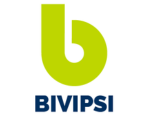Migrant families
Fatherhood and Parentage: Is Migration a Destiny?
DOI:
https://doi.org/10.36496/n140.a7Keywords:
migration, another culture, identity, mourning, exile, familyAbstract
This article describes the migratory process in its intrapsychic, intersubjective and sociocultural aspects. The place of the stranger is par excellence that which every migrant has to accept to occupy, configuring a place of difference, otherness and radical negativity. We quote the Freudian Unheimlich to think of this place of stran- ger, being threatening and familiar at the same time. All migration requires migrants to develop a great psychic plasticity because they will have to undergo constant changes and thus build their own interculturality. The migrant family develops certain characteristics of its own, as it goes through the process of adaptation to the host country. We define the concept of parentship and filiation, in a broad reciprocal relationship. We note in the migrating family, a reversal of places between generations caused by the changes that all migration im- poses on the people who go through this process. The children of migrant families, having mastered the new language before their parents, guide them in their habits and customs and this creates great changes in the family.
Downloads
References
Berenstein, I. (2007). Del ser al hacer: Curso sobre vincularidad. Paidós.
Buarque Ferrreira, A. (2008a). Exílio. En A. Buarque Ferrreira, Dicionário Aurélio da Língua Portuguesa. Positivo.
Buarque Ferrreira, A. (2008b). Migração. En A. Buarque Ferrreira, Dicionário Aurélio da Língua Portuguesa. Positivo.
Eco, U. (2020). Migração e intolerância. Record. (Trabajo original publicado en 2019).
Kaës, R. (2017). O complexo fraterno. Ideias & Letras. (Trabajo original publicado en 2008).
Kristeva, J. (1994). Estrangeiros para nós mesmos. Rocco. (Trabajo original publicado en 1988).
Martin, N. (2021). Escute as feras. Editora 34. (Trabajo original publicado en 2019)
Moreira Leite, D. (1954). O caráter nacional brasileiro: História de uma ideologia. Pioneira.
Muñoz Molina, A. (2001). Sefarad. Alfaguara.
Rosa, M., Carignato, T. y Berta, S. (2006). Metáforas do deslocamento: Imigrantes, migrantes e refugiados e a condição errante do desejo. En A. Costa y D. Rinaldi, (org.), Escrita e psicanálise. Companhia de Freud.
Santos, M. (2007). O espaço do cidadão. Universidade de São Paulo.
Seidmann, S. (1990). Migración y cambio: La búsqueda de la identidad. Oficina de publicaciones de la Facultad de Psicología de la Universidad de Buenos Aires.
Viñar, M. y Viñar, M. (1992). Exílio e tortura. Escuta.
Downloads
Published
Issue
Section
License
Copyright (c) 2025 Revista Uruguaya de Psicoanálisis

This work is licensed under a Creative Commons Attribution 4.0 International License.









 This work is licensed under a
This work is licensed under a 